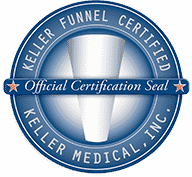Liposuction in Portland, OR
What is liposuction?
Liposuction is a body sculpting cosmetic procedure which will help you eliminate pockets of fat, which are exercise resistant. Liposuction commonly treats excess fat on the thighs, hips, buttocks, abdomen, upper arms, and back. As a top board-certified plastic surgeon, Dr. Bohley uses advanced techniques to give patients natural-looking results. For example, he performs minimally invasive liposuction to minimize pain and bruising, and to promote quick recovery. To conceal scarring, he creates small incisions in inconspicuous areas of the body. Under the outstanding care of Dr. Bohley, patients achieve the slim, stunning figures they have always wanted.
Am I a good candidate for liposuction?
You are an ideal candidate for liposuction if you are within 30% of your ideal body weight, have elastic and firm skin, and have a good muscle tone. You should also be a non-smoker and be in general good health with no medical condition that could impair your healing. A positive outlook and realistic goals from your procedure are ideal for any cosmetic procedure.
During a one-on-one consultation, Dr. Bohley creates personalized treatment plans for his Portland and Vancouver patients that address the specific needs of each liposuction patient. Sometimes, he may suggest a combination of procedures that help patients achieve the best possible aesthetic results. For example, a tummy tuck may be necessary for some patients to eliminate sagging, excess abdomen skin.
If you are located in Hood River, you may consider a Liposuction in Hood River, OR.
What is the recovery from liposuction?
Liposuction recovery time varies greatly among patients. You will be wearing a compression garment and must try to elevate the treated body part if possible. For the first few days, you are required to rest completely. The swelling from your surgery usually disappears within two to three weeks, but some swelling may remain for up to a month. Bruising from the surgery is also normal and usually disappears within seven to 10 days. This is when your sutures will be removed as well. Exercise is to be avoided for at least four to six weeks, for it could trigger fluid retention. There may be a fluctuating return of the swelling by 10% to 15% for up to nine months.
What will be my results like?
It is important to know that liposuction is not a fat-loss substitute, you will have to maintain a healthy lifestyle to maintain the results of your liposuction procedure. The fat loss is more or less permanent, however, your body contours may change due to weight gain, pregnancy, aging, lifestyle changes, and genetics. If you continue to consume extra calories, fat cannot be stored in the fat cells that are removed but will get stored in other body parts. In short, you can ensure your results are long-lasting by maintaining a stable weight.
What is the cost of liposuction?
Liposuction costs vary from practice to practice and for each patient. These costs may include anesthesia fees, surgical facility costs, medical tests, post-surgery garments, prescription medication, and surgeon’s fees. It is important to choose a board-certified plastic surgeon like Dr. Bohley when deciding to undergo this type of aesthetic surgery. The final results and outcomes of your surgery greatly depend on the plastic surgeon you choose.
A consultation with Dr. Bohley in Portland, OR is the first step toward the new you. During your consultation, you will discuss your surgical goals with Dr. Bohley, and he will create a unique surgical plan to help meet those goals. If you are interested in liposuction surgery, contact our office today to schedule your initial consultation. We would be happy to answer any questions you may have.








